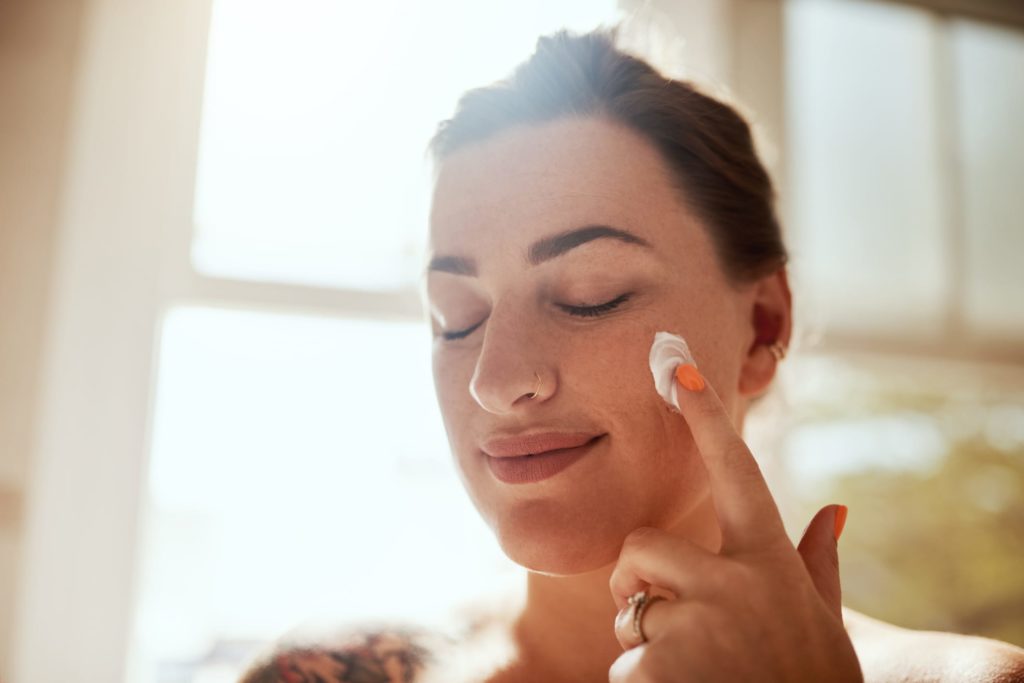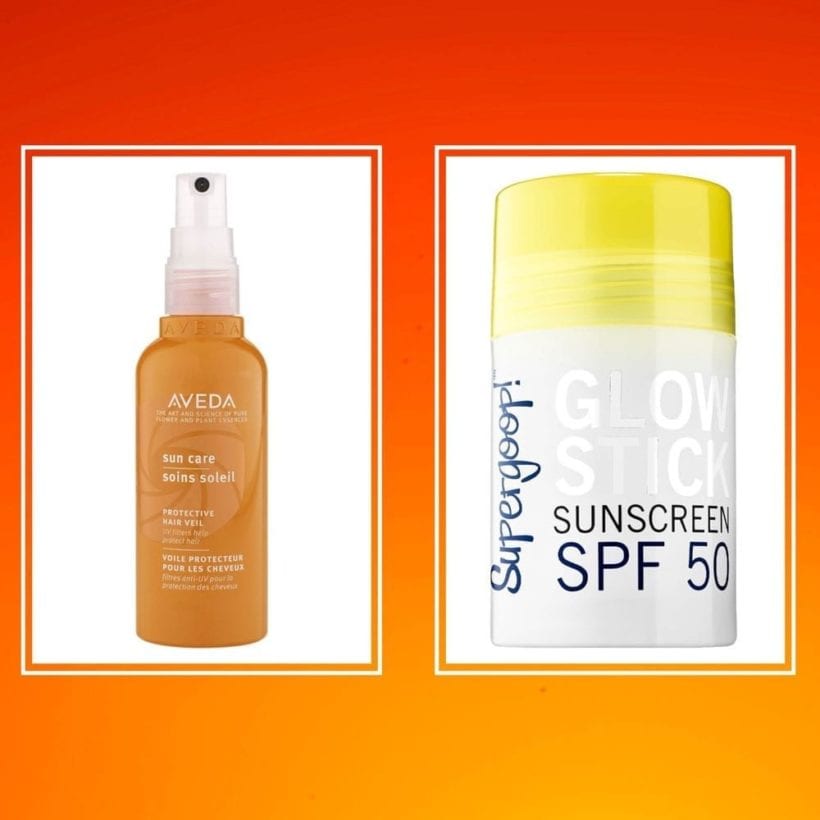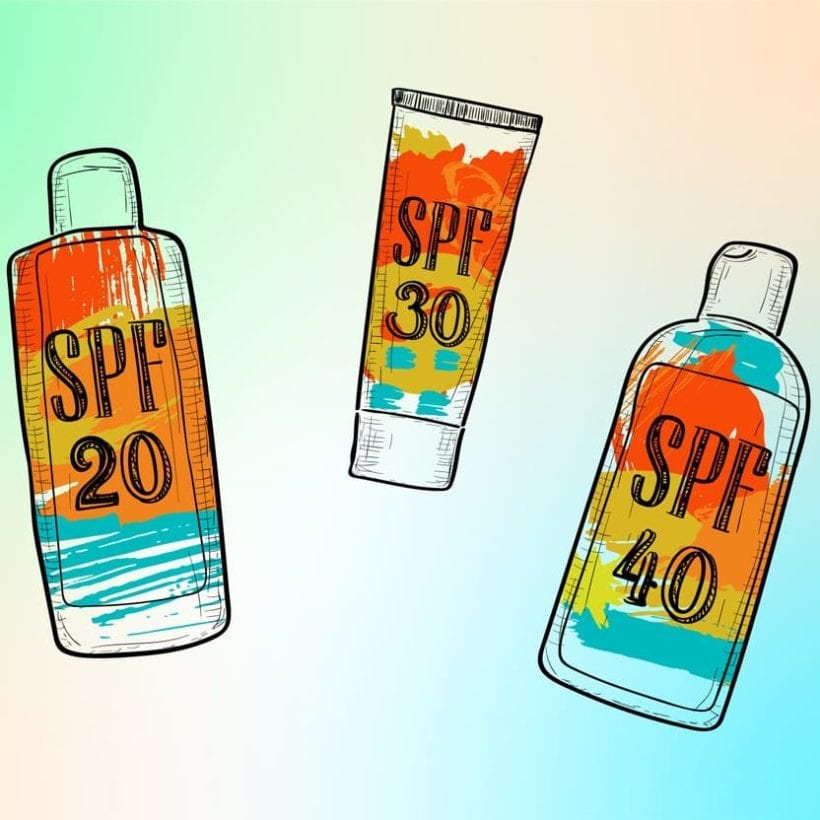When it comes to taking proper care of your skin, using sunscreen is non-negotiable. It’s incredibly important to protect your skin from UV ray exposure each and every day — and consistently using sunscreen with an SPF (sun protection factor) of 30 or above will help to block or absorb the rays and prevent damage to your skin.
So, we know that UVA and UVB rays can cause sun damage, skin cancer, and premature aging, and that sunscreen will reduce those overall risks and exposures. But, if your daily face moisturizer already has SPF, do you need to use a separate sunscreen on top of it? Is it helpful? Harmful? Does it even make a difference?
We spoke with Dr. Joshua Zeichner, Associate Professor of Dermatology Director of Cosmetic & Clinical Research in Dermatology at Mount Sinai Hospital in New York City, to set things straight. Here’s what he had to say about SPF, face sunscreens, and how to protect your skin.
Do you need to double up?

The amount of moisturizer or foundation you would need to apply to the face to get the protection you need is so much that it would be unrealistic for the average consumer. Plus we should be topping up every two hours, so your skin just wouldn’t be able to hold that much foundation.
Dr. Zeichner explains, “any product that has an SPF value on the bottle will give you that level of protection if you apply it properly. So, a moisturizer with SPF will be equally effective as a straight sunscreen in protecting you from the sun if you apply enough.” SPF is SPF, and regardless of whether it is in moisturizer, foundation, or straight sunscreen, the SPF is SPF – and all SPF-containing products use the same types of UV blocking ingredients to protect your skin from the sun.
So how can you ensure proper application?
Proper application is key to fully maximizing the SPF within your product. So, regardless of whether it is a moisturizer, foundation, or plain old sunscreen, “You need to make sure you apply a quarter-sized follow for the full face, which is more than you may be using,” Dr. Zeichner says.
To make sure you use enough, he recommends applying a line of sunscreen or moisturizer +SPF on your index and middle fingers, and then rub that amount into your face.
Can you use “regular” sunscreen on your face?
Though the active ingredients used to block UV rays in both face-specific products and general body sunscreens are the same, the base that they come in and the skincare ingredients they may contain are different. So it’s important to shop carefully.
Zeichner explains, “Sunscreens for the face tend to be more cosmetically elegant and may contain ingredients like antioxidants or soothing ingredients. Face sunscreens often also use specialized technologies like anhydrous or oil-free delivery systems,” which can help to prevent clogged pores and breakouts.
So while the sun protection level isn’t affected by the formulation, the way it feels, looks, and its effects on your skin will vary.
Key Ingredients
When it comes to sun protection for your face, Dr. Zeichner suggests looking for a sunscreen that suits your skin’s personal needs. If you are oily or acne-prone, he recommends opting for oil-free products.
If you have aging skin or dark spots, consider sunscreen with antioxidant benefits or botanical brighteners. And, if you are sensitive, he suggests using a mineral sunscreen with zinc oxide alone, or in combination with titanium dioxide.
When do you need SPF?
Prior to heading out to the beach, pool or park, it’s common practice to apply sunscreen for a fun day in the sun. But you really need to apply sunscreen, especially to your face, almost every single day. The only time you get a pass on sunscreen is if you are indoors and it is nighttime. Otherwise, he says, you should be wearing sunscreen daily.

“Incidental UV light exposure adds up over a lifetime,” warns Dr. Zeichner. “That means that even low exposures you can get when commuting to work or when having lunch outdoors do impact your skin over time.” Even when you think you aren’t, Dr. Zeichner says you can be at risk for sun damage, because UV light can penetrate through window glass both at home and in the car, and through the clouds, too.
The takeaway? Whether it’s moisturizer, foundation, or sunscreen – just make sure you apply SPF to your face properly, and every day.







